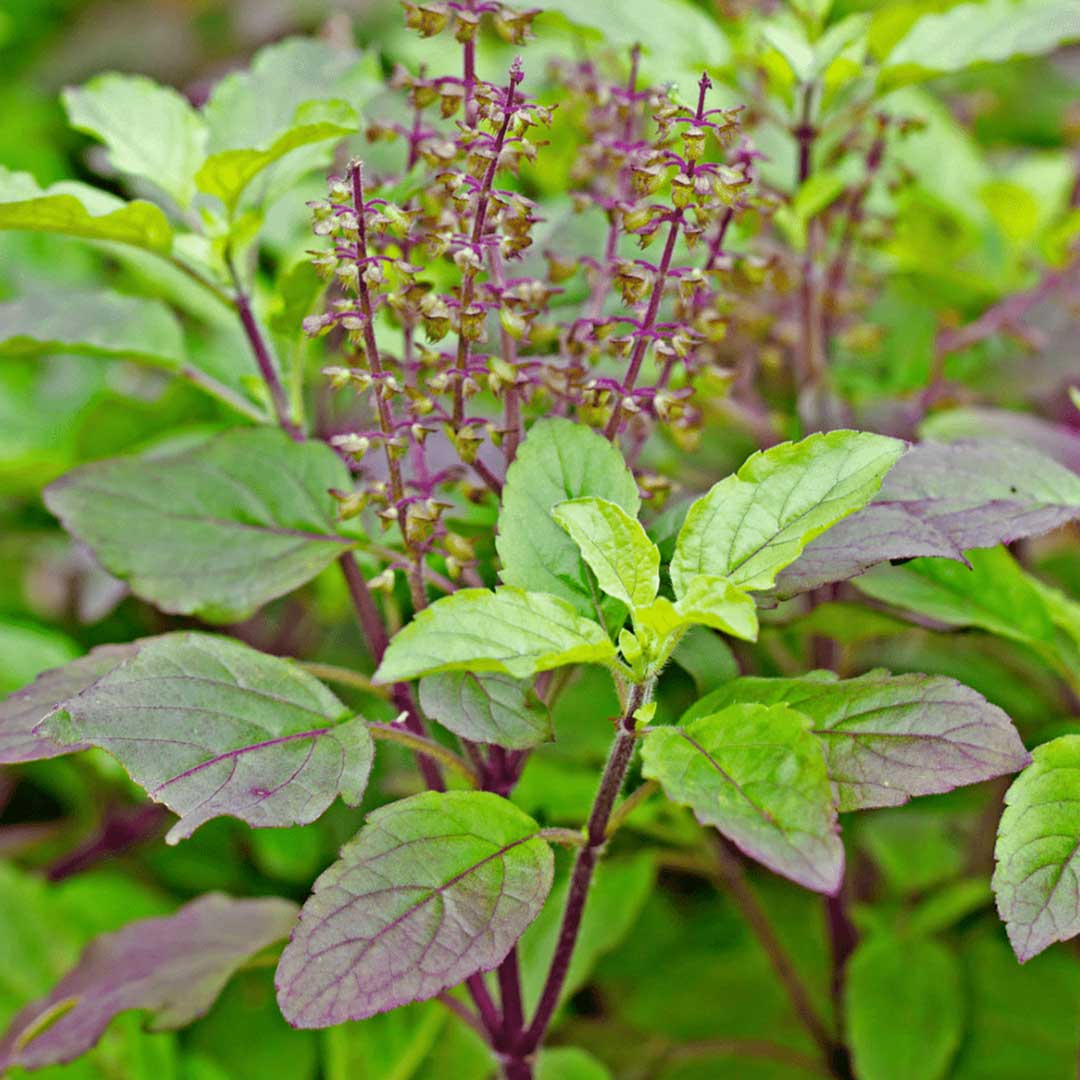Your cart is currently empty!

Ocimum tenuiflorum (Holy Basil or Tulsi)
- Scientific Classification:
- Kingdom: Plantae
- Clade: Tracheophytes
- Subclass: Angiosperms
- Clade: Eudicots
- Order: Lamiales
- Family: Lamiaceae
- Genus: Ocimum
- Species: Ocimum tenuiflorum

- Description:
- Holy Basil, or Tulsi, is a sacred and aromatic herb with a rich history in traditional medicine and cultural practices.
- The plant has highly aromatic green leaves with serrated edges.
- It can reach a height of 30 to 60 cm and has a strong, distinct aroma.
- The flowers are usually purple, arranged in spikes, and bloom in late summer.
- Uses:
- Medicinal:
- Holy Basil is revered for its medicinal properties in various traditional healing systems, including Ayurveda.
- It is believed to have adaptogenic, anti-inflammatory, and antioxidant properties.
- Used to treat respiratory issues, stress, and promote overall well-being.
- Culinary:
- Leaves are used in culinary dishes, teas, and herbal infusions.
- Adds a unique flavor to various dishes, especially in Southeast Asian cuisine.
- Religious and Cultural Significance:
- Holy Basil is considered sacred in Hinduism and is often grown around temples and homes.
- Used in religious rituals and ceremonies.
- Medicinal:
- Cultivation:
- Holy Basil prefers well-drained soil and a warm, tropical climate.
- It is an annual plant but can reseed itself.
- Requires full sun for optimal growth.
- Propagation is commonly done through seeds or cuttings.
- Regular pruning helps maintain the plant’s shape and encourages more leaf production.
- Varieties:
- There are several varieties of Holy Basil, including Rama Tulsi (green leaves), Krishna Tulsi (purple leaves), and Vana Tulsi (wild or forest Tulsi).
- Harvesting:
- Leaves can be harvested once the plant has reached a sufficient size.
- Harvesting should be done in the morning for the best flavor and aroma.
- Regular harvesting encourages branching and a bushier plant.
- Storage:
- Fresh leaves can be stored in the refrigerator for a short period.
- Drying leaves for long-term storage is common, preserving the herb’s properties.
- Precautions:
- While generally safe, individuals with certain medical conditions or those on medications should consult a healthcare professional before using Holy Basil medicinally.